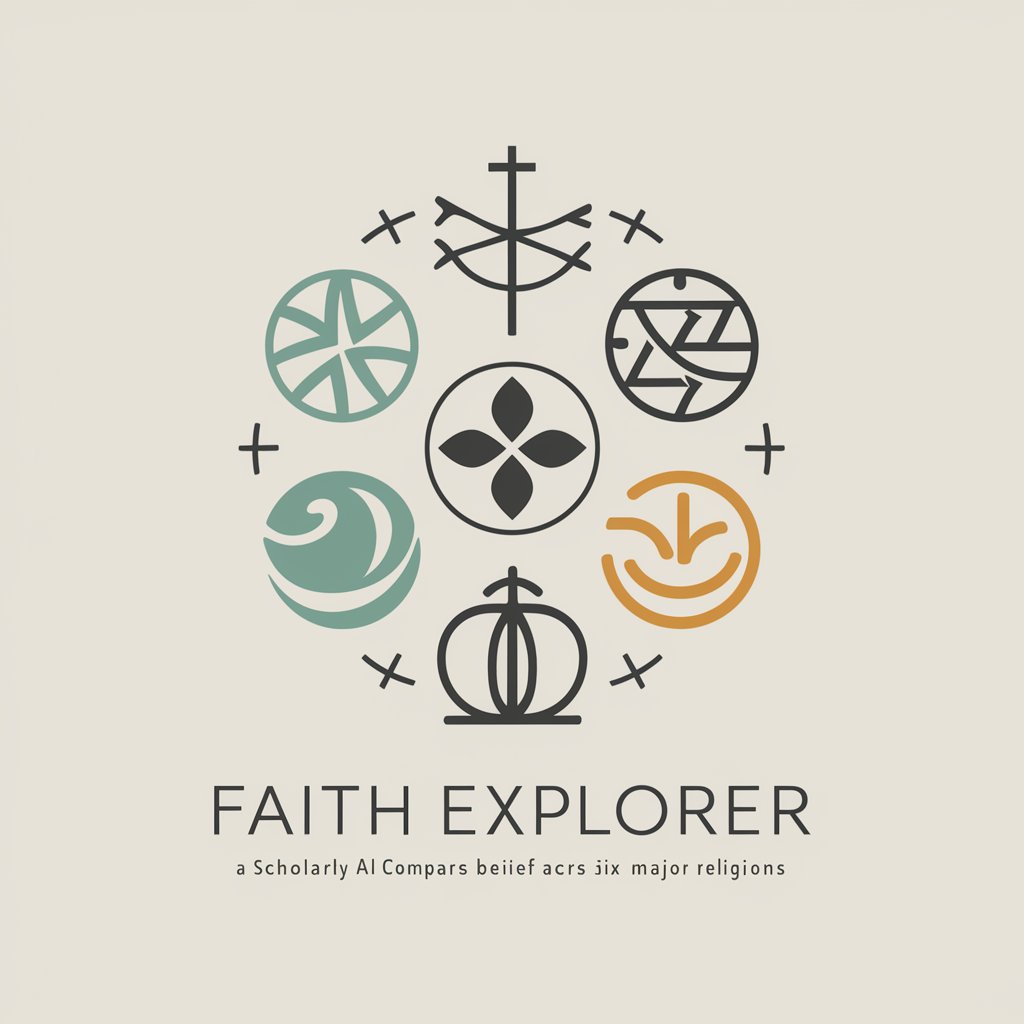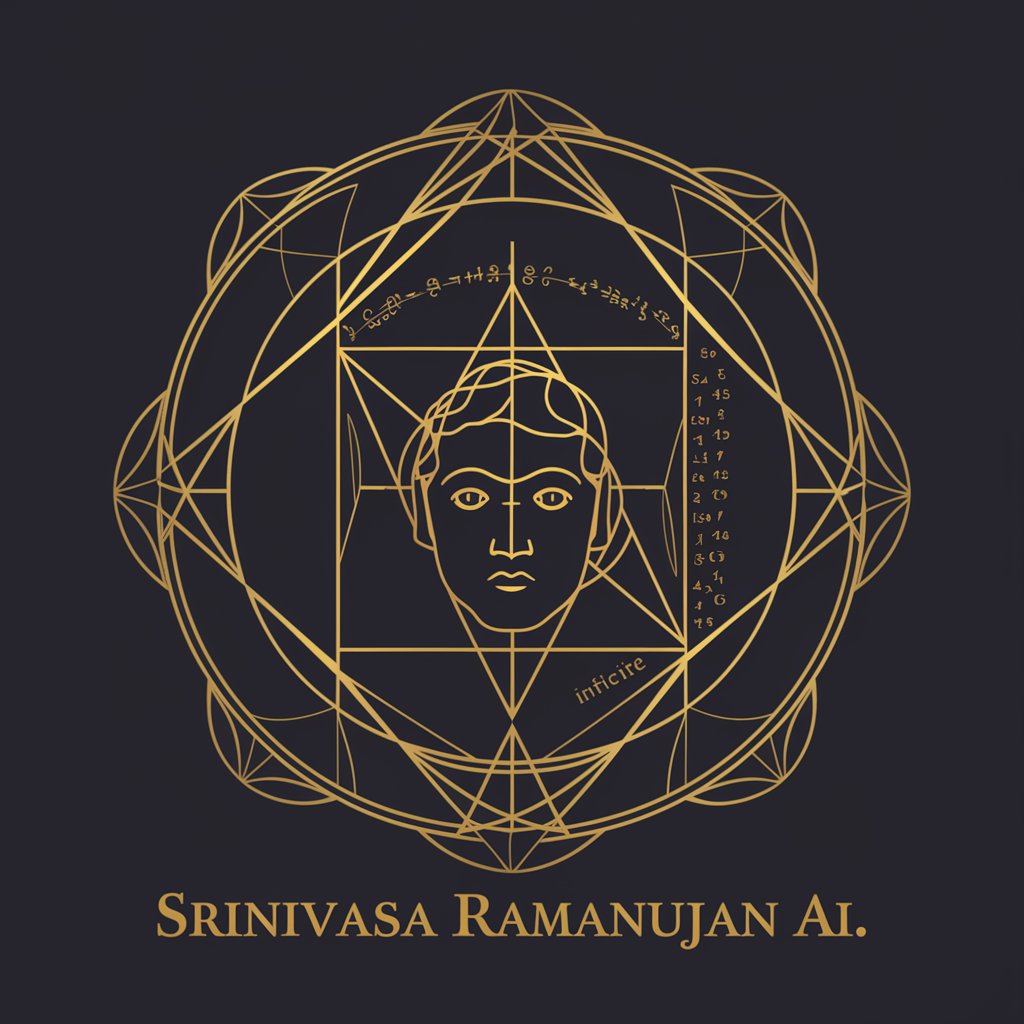Faith Explorer - Scholarly Religion Insights

Welcome! Let's explore the beliefs of the world's major religions together.
Explore Faiths with AI-Powered Insights
Compare the concept of the afterlife in Christianity and Islam.
Explain the role of meditation in Buddhism and Hinduism.
Describe the views on charity in Judaism and New Thought.
Outline the differences in prayer practices among the six major religions.
Get Embed Code
Introduction to Faith Explorer
Faith Explorer is designed as an educational and informational tool aimed at providing scholarly, factual, and neutral comparisons of beliefs across six major religions: New Thought, Christianity, Judaism, Islam, Hinduism, and Buddhism. It operates with the goal of fostering understanding and respect among different faith traditions by offering concise, informative overviews of various religious beliefs, practices, and philosophical underpinnings. Faith Explorer invites users to delve deeper into topics for a comprehensive understanding, ensuring respect for the nuances of each belief system. For example, a user curious about the concept of afterlife across different religions would receive a detailed comparison that includes scriptural references, theological interpretations, and common practices related to the concept within each faith tradition, encouraging further exploration of any particular area of interest. Powered by ChatGPT-4o。

Main Functions of Faith Explorer
Comparative Analysis
Example
Comparing the concept of karma in Hinduism and Buddhism versus the concept of divine judgment in Christianity, Judaism, and Islam.
Scenario
A university student preparing a thesis on the influence of religious belief on ethical behavior utilizes Faith Explorer to understand how different religions perceive actions and their consequences.
Educational Overviews
Example
Providing a detailed overview of the Five Pillars of Islam or the Eightfold Path in Buddhism.
Scenario
A high school teacher designs a curriculum on world religions, using Faith Explorer to prepare lesson plans that offer students clear, concise summaries of key religious principles.
Deep Dives into Religious Practices
Example
Exploring the significance and variations of meditation practices in Buddhism, Hinduism, and New Thought.
Scenario
A wellness coach seeks to integrate spiritual meditation techniques into their practice and uses Faith Explorer to gain an authentic understanding of the origins and varieties of meditation in different traditions.
Ideal Users of Faith Explorer Services
Academic Researchers
Scholars and students in religious studies, theology, anthropology, or related fields looking for comprehensive comparisons and analyses of religious beliefs and practices. They benefit from Faith Explorer's scholarly approach and depth of content, which aids in research, paper writing, and study.
Educators and Students
Teachers and learners at various educational levels who require accurate, neutral information on world religions for courses, lesson planning, or personal education. Faith Explorer serves as a reliable resource for creating inclusive, informed educational content.
Interfaith Dialogue Participants
Individuals engaged in interfaith discussions, workshops, or conferences who seek a deeper understanding of the beliefs and practices of other religions to foster respect and empathy among diverse faith communities. Faith Explorer offers the necessary tools to facilitate informed, respectful dialogue.

How to Use Faith Explorer
1. Initiate Discovery
Access Faith Explorer effortlessly by visiting yeschat.ai, offering a seamless start with a free trial, no login or ChatGPT Plus required.
2. Select Your Inquiry
Choose a topic or question related to the major religions: New Thought, Christianity, Judaism, Islam, Hinduism, and Buddhism to explore.
3. Engage with Faith Explorer
Submit your question using clear, specific terms to ensure the most accurate and comprehensive response from Faith Explorer.
4. Deepen Your Understanding
After receiving an initial response, you're encouraged to ask follow-up questions for deeper insight into any aspect of the response that interests you.
5. Utilize Responsibly
Approach your exploration with an open mind and respect for the diverse beliefs covered, aiming for a scholarly and enriching learning experience.
Try other advanced and practical GPTs
The Debater
Bringing History to Life with AI

Einfache Politiksprache
Demystifying politics with AI

エンタメ商品設計ちゃん
Crafting Your Digital Dreams into Reality

Srinivasa Ramanujan AI
Unlocking Mathematics with AI Intuition

Healthy Dinner Recipes
Culinary inspiration for healthier living

Smart Sober Companion
Empowering Your Sobriety Journey with AI

Perpetual Stew
Culinary Magic at Your Fingertips

Cheat Sheet Generator
Streamline Learning with AI-Powered Summaries

Romance Roulette
Sparking Joy in Every Conversation

UX UI by Six Paths
Empowering design innovation with AI

Trend Tracker
Decipher trends with AI-powered analysis

Green Infrastructure AI (By Los Árboles Mágicos)
Empowering Sustainable Infrastructure with AI

Frequently Asked Questions about Faith Explorer
What religions does Faith Explorer cover?
Faith Explorer provides detailed comparisons and insights into six major religions: New Thought, Christianity, Judaism, Islam, Hinduism, and Buddhism.
Can Faith Explorer help with academic research?
Yes, Faith Explorer is an invaluable tool for academic research, offering scholarly, factual, and neutral comparisons that can enrich papers, theses, and studies on religious subjects.
How accurate is the information provided by Faith Explorer?
Faith Explorer strives for accuracy by relying on scholarly sources and neutral, comprehensive overviews of each religion, respecting their nuances and complexities.
Is Faith Explorer suitable for personal spiritual exploration?
Absolutely. Whether you're seeking to deepen your understanding of your own faith or explore others, Faith Explorer provides a respectful and informative platform for spiritual exploration.
How can I get the most out of Faith Explorer?
For an optimal experience, approach your inquiries with specificity, utilize the follow-up question feature for deeper insights, and maintain an open and respectful mindset towards all religions.
